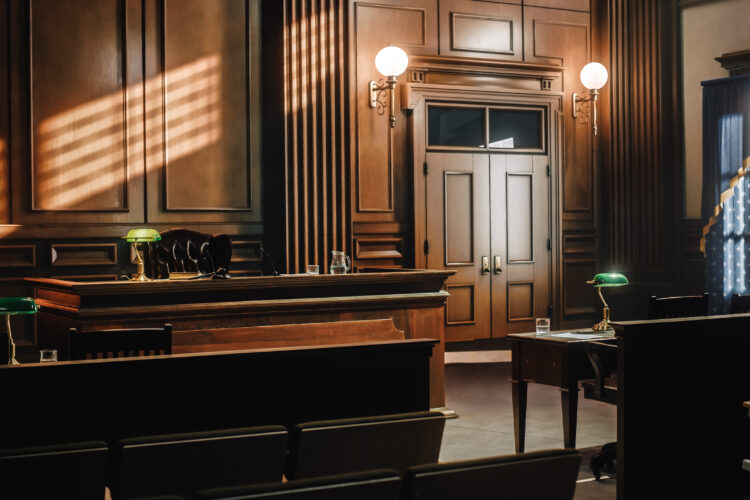May 5, 2023
Grand juries are an important part of the criminal legal justice system in both federal court and California state criminal courts. Grand juries work behind closed doors and so, for many, can be an opaque and particularly intimidating aspect of the criminal process. Whether you are a target, subject, or witness involved in a state or federal grand jury proceeding, you are strongly encouraged to speak with experienced criminal defense counsel to assess your situation and assert your rights.
When Grand Juries Are Used in California Criminal Cases
California is one of a limited number of states that continue to use grand juries in bringing criminal charges against an individual, and such charges in California may be brought through either a preliminary hearing at which a judge may determine whether there is sufficient evidence to charge you, or through the use of a grand jury which will make this same determination via an indictment.
Most California state criminal charges are brought during a preliminary hearing without the use of a grand jury, but grand juries are frequently utilized in particular types of cases. For example, criminal charges that are brought against a public official – such as those relating to public corruption – are often pursued via a grand jury. Additionally, grand juries may be utilized where there are other factors that might make a grand jury preferable to a preliminary hearing, such as where children are to serve as witnesses in the case or there is high public interest in the case.
When Grand Juries Are Used in Federal Courts
Grand juries are more frequently utilized in federal cases, as the Fifth Amendment of the United States Constitution guarantees, among other things, that no person shall be held to answer for a capital or “otherwise infamous crime” unless on presentment or indictment by a grand jury. Generally, this means most federal felony charges are typically pursued via the grand jury process.
What Grand Juries Do
Grand juries, like trial juries, are composed of ordinary citizens selected from a wide variety of backgrounds to hear evidence and make determinations. Specifically, grand juries listen to and examine evidence presented by prosecutors and witnesses and determine whether there is sufficient evidence to criminally indict an individual or organization. Such evidence can include live testimony, documents, photos and videos, and other physical evidence. Grand juries meet over an extended period of time and will typically hear information related to numerous cases.
Unlike a jury at a criminal trial, a grand jury operates in secret in that the proceedings are not open to the public or to the targets of the investigation, although a target may be invited to attend a grand jury proceeding. As such, a criminal target does not have the opportunity to present their own evidence or cross-examine witnesses. Grand juries may also hear evidence that would not otherwise be admissible in a criminal trial. After hearing the evidence presented by prosecutors, the grand jury will then vote on whether sufficient evidence to issue an indictment exists. At the federal level, 23 members serve on a grand jury, and only 12 votes are needed to indict a target.
What Is a Grand Jury Target?
A grand jury target is an individual or organization that may be criminally charged by the grand jury via an indictment after the grand jury hears the evidence related to potential wrongdoing by the target. A target is not a criminal defendant because no charges have yet been issued while the grand jury examines the evidence and deliberates. However, a person who is a target is presumed by prosecutors to be a potential defendant in a criminal case as the prosecutor believes there is sufficient evidence linking that person with the commission of a crime and is seeking to make that person a criminal defendant via the grand jury process.
A grand jury target may receive a “target letter” from prosecutors either in the course of grand jury proceedings or prior to any such proceedings. The letter may be requesting that the target attend a grand jury proceeding or meet with prosecutors. Targets of grand jury proceedings should contact experienced criminal defense counsel at the earliest possible moment to discuss the proceedings and to ensure that they are asserting all relevant rights, including exercising their right against self-incrimination.
An individual may also be designated as a “subject” of a criminal proceeding rather than a target. A subject is somewhere between a target and a witness in that the government believes the subject may have relevant evidence to provide, but has not yet determined whether that person may be criminally culpable as well.
What Is a Grand Jury Witness?
A grand jury witness, as the name implies, is someone who is typically subpoenaed to provide evidence to the grand jury. The subpoena may request live testimony, documents, and other physical evidence, or both. Although a witness is someone who is generally not assumed to be criminally culpable at the point in the process at which they are subpoenaed, the grand jury and prosecutors are actively seeking information such that a witness’ designation could change to either subject or target. Thus, grand jury witnesses are encouraged to speak with criminal defense counsel to assess their own circumstances while also ensuring they meet their legal obligations to the grand jury.
Conclusion
The attorneys of Zweiback, Fiset & Zalduendo are dedicated to zealously working on behalf of clients in order to powerfully defend their interests, minimize damages and other adverse consequences, and protect their reputations while preserving their resources. Our attorneys creatively and efficiently strategize toward positive resolutions that serve our client’s comprehensive, long-term goals. If you have reason to believe you are a target, subject, or witness in a federal or California grand jury proceeding, contact our office to speak with an experienced defense attorney regarding your situation today.

